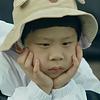Take a photo of a barcode or cover
emotional
hopeful
lighthearted
medium-paced
Plot or Character Driven:
A mix
Strong character development:
Yes
Loveable characters:
Yes
Diverse cast of characters:
No
Flaws of characters a main focus:
Yes
Graphic: Child abuse, Physical abuse, Forced institutionalization, Gaslighting, Classism
Moderate: Death, Fire/Fire injury, Abandonment
Minor: Grief
emotional
inspiring
mysterious
medium-paced
Plot or Character Driven:
A mix
Strong character development:
Yes
Loveable characters:
Yes
Diverse cast of characters:
No
Flaws of characters a main focus:
Yes
adventurous
dark
emotional
tense
adventurous
dark
emotional
inspiring
reflective
medium-paced
Plot or Character Driven:
Character
Strong character development:
Yes
Loveable characters:
Complicated
Diverse cast of characters:
Yes
Flaws of characters a main focus:
Complicated
Absolutely phenomenal. While the jury is still out on whether or not I agree with Dorothy Sayers about Mr. Rochester (see her introduction to Dante’s Purgatio), Jane is a fantastic, gripping, exceedingly well-written heroine. The novel is very gothic, but it does so much more than just “thrill”. I will be thinking about this one for a long time.
Second time reading this, after reading it for the first time about a year ago.
Jane Eyre is a brilliant, stunning novel that holds up absolutely upon returning to it. In Jane, Brontë paints a complex and nuanced portrait of a woman of intense feeling and great moral strength. The conflict that Jane endures throughout the book—hedonism versus pharisaism versus true, but scandalous, Christian morality—is moving and fascinating, and also a type of the kind we are all bound up in.
On this second, slower reading, I was able to pay more attention to certain textual elements that I missed when reading the first time through. I think that Jane is another example of a Brontë unreliable narrator—something I have not seen as widely commented on as in Villette, though I think Jane is a more likable character and the narration more effective here. Likewise the thematic rhythm was a bit clearer to me now than before: “God did not give me my life to throw away.” It is good for Jane to love and feel and need and be needed by others. For so much of her life, she is shut up and ordered—by otherwise-respectable and moral people—to disappear or self-destruct in order to cater to the selfish needs of others. She is told to bend to the will of others, regardless of what her conscience tells her. But “conventionality is not morality,” and Jane ultimately triumphs by doggedly pursuing what is good, even if it does not look or is not thought to be so.
I am biased toward this novel because I feel a great sense of kinship with Jane. For women like Jane, those of us caught in the crosshairs of high feeling, deep conviction, and a relentless desire to love and be loved, appreciate and be appreciated, life can be a hell and a disappointment. In Jane Eyre, Brontë is able to transform this struggle, so often mundane, and make it heroic. Jane Eyre has her seat among the pantheon of real female heroes, those fictional women whose virtue and strength is inextricably bound to their femininity, often paradoxically.
I do have to disagree with Dorothy Sayers’ denouncement of Rochester as a failed ideal masculine type. I do find in Rochester a picture of a particular kind of man and a particular embodiment of masculinity, as with Jane’s embodiment of femininity. Rochester is the “Vulcan,” not the “Apollo,” the man of directness and action—even of violence—but not without a moral code.
Further, Brontë strikes at the heart of the feminine fear of the masculine: will this man destroy me? As with so many nineteenth century authors, Brontë warns us that the man who seems refined or moral or respectable may, in fact, be the greater villain than the unpolished, imperfect man who cares more for what is right than what is respectable.
We are presented, then, with a wonderfully drawn image of man and woman in love, who are really in pursuit of Love Himself. Neither of the protagonists are so universal as to stop being real, individual characters, though, which is what gives the novel its strength. Brontë really captures the paradoxical sense of strangeness and sameness that makes for a great romance, how two totally different and unique people could be somehow just alike, and the paradoxical nature of Christianity, how bad becomes good and the good may have been bad all along. The scandal of the Gospel is on display in Jane Eyre, and it is a scandal more life-giving than all the dead conventionality society can throw at our heroine.
Jane Eyre is a brilliant, stunning novel that holds up absolutely upon returning to it. In Jane, Brontë paints a complex and nuanced portrait of a woman of intense feeling and great moral strength. The conflict that Jane endures throughout the book—hedonism versus pharisaism versus true, but scandalous, Christian morality—is moving and fascinating, and also a type of the kind we are all bound up in.
On this second, slower reading, I was able to pay more attention to certain textual elements that I missed when reading the first time through. I think that Jane is another example of a Brontë unreliable narrator—something I have not seen as widely commented on as in Villette, though I think Jane is a more likable character and the narration more effective here. Likewise the thematic rhythm was a bit clearer to me now than before: “God did not give me my life to throw away.” It is good for Jane to love and feel and need and be needed by others. For so much of her life, she is shut up and ordered—by otherwise-respectable and moral people—to disappear or self-destruct in order to cater to the selfish needs of others. She is told to bend to the will of others, regardless of what her conscience tells her. But “conventionality is not morality,” and Jane ultimately triumphs by doggedly pursuing what is good, even if it does not look or is not thought to be so.
I am biased toward this novel because I feel a great sense of kinship with Jane. For women like Jane, those of us caught in the crosshairs of high feeling, deep conviction, and a relentless desire to love and be loved, appreciate and be appreciated, life can be a hell and a disappointment. In Jane Eyre, Brontë is able to transform this struggle, so often mundane, and make it heroic. Jane Eyre has her seat among the pantheon of real female heroes, those fictional women whose virtue and strength is inextricably bound to their femininity, often paradoxically.
I do have to disagree with Dorothy Sayers’ denouncement of Rochester as a failed ideal masculine type. I do find in Rochester a picture of a particular kind of man and a particular embodiment of masculinity, as with Jane’s embodiment of femininity. Rochester is the “Vulcan,” not the “Apollo,” the man of directness and action—even of violence—but not without a moral code.
Spoiler
His ultimate repentance and restoration—such a crucial part of the novel’s conclusion but seemingly absent from its adaptations—is the apotheosis of his nature, not its undoing: the glimpses of virtue we see in Rochester in the early novel are brought to their completion.Further, Brontë strikes at the heart of the feminine fear of the masculine: will this man destroy me?
Spoiler
While Rochester’s moods are erratic and his physical capacity for violence seemingly greater, it is actually St. John who poses the greater threat. Whereas Rochester acknowledges that nothing he could do to Jane’s frame would grant him access to what he ultimately seeks communion with—her soul—it is St. John’s cold aloofness, his taciturn refusal to care for her while trying to extract her usefulness, that actually threatens Jane’s existence. Whereas St. John desires Jane’s self-immolation to fuel his ambition, however pious, Rochester sees the fire that consumed his independence and strength as a just punishment for his selfish desire of Jane. The “violent” Edward Rochester desires Jane’s life, while the “heroic” St. John Rivers desires her death.We are presented, then, with a wonderfully drawn image of man and woman in love, who are really in pursuit of Love Himself. Neither of the protagonists are so universal as to stop being real, individual characters, though, which is what gives the novel its strength. Brontë really captures the paradoxical sense of strangeness and sameness that makes for a great romance, how two totally different and unique people could be somehow just alike, and the paradoxical nature of Christianity, how bad becomes good and the good may have been bad all along. The scandal of the Gospel is on display in Jane Eyre, and it is a scandal more life-giving than all the dead conventionality society can throw at our heroine.
adventurous
emotional
hopeful
lighthearted
relaxing
medium-paced
Plot or Character Driven:
A mix
Strong character development:
Yes
Loveable characters:
Yes
Diverse cast of characters:
Yes
Flaws of characters a main focus:
Yes
adventurous
dark
emotional
mysterious
slow-paced
mysterious
relaxing
medium-paced
Plot or Character Driven:
A mix
Strong character development:
Yes
Loveable characters:
Complicated
Diverse cast of characters:
Yes
Flaws of characters a main focus:
Yes
emotional
mysterious
reflective
relaxing
sad
slow-paced
Plot or Character Driven:
Character
Strong character development:
Yes
Loveable characters:
Yes
Diverse cast of characters:
No
Flaws of characters a main focus:
Yes





